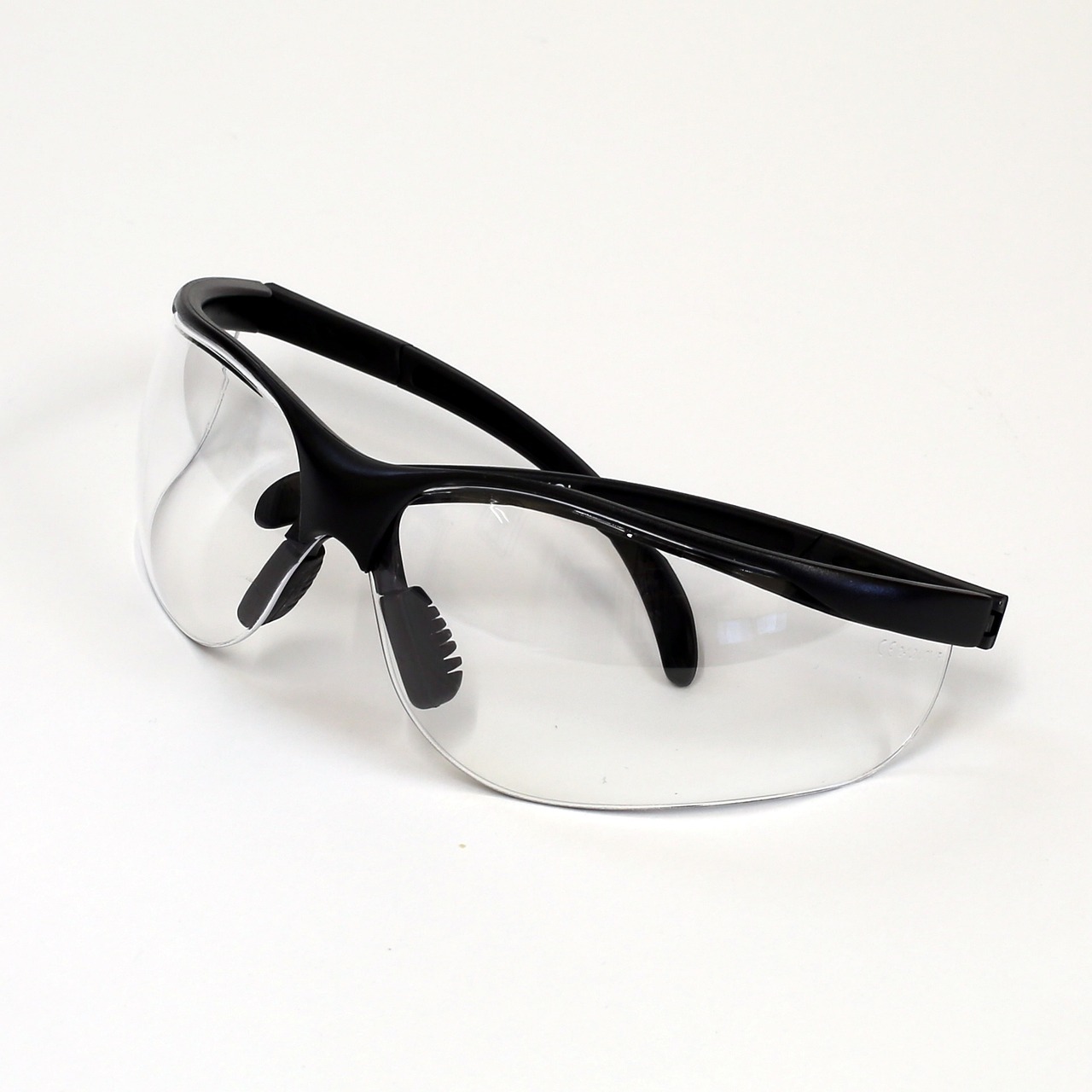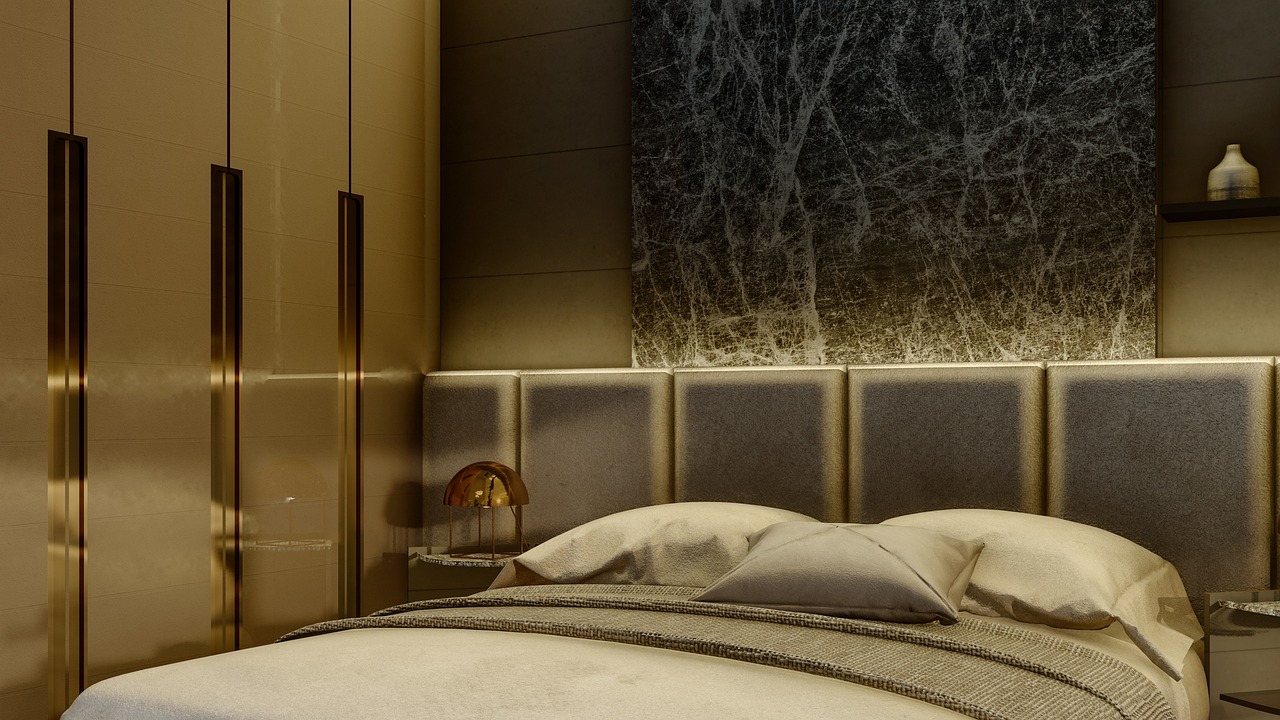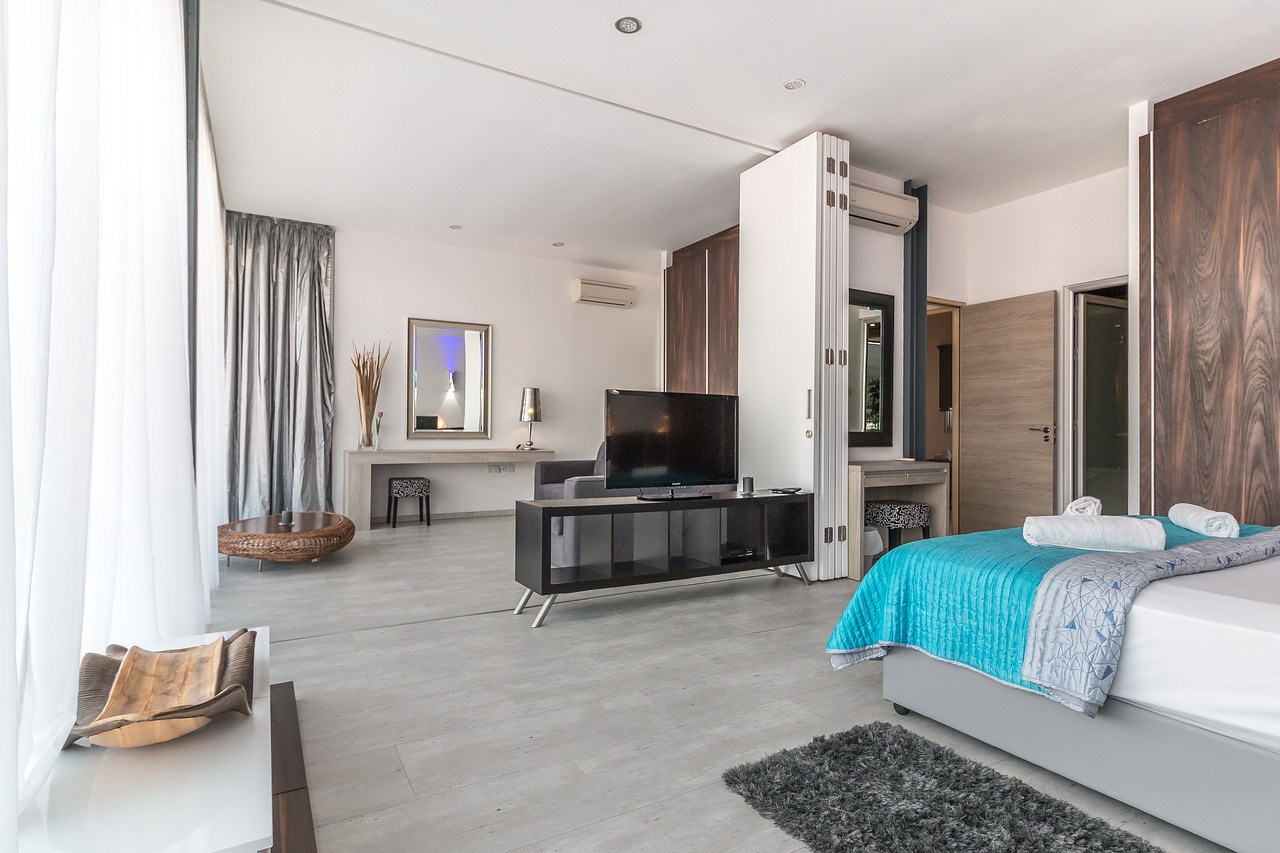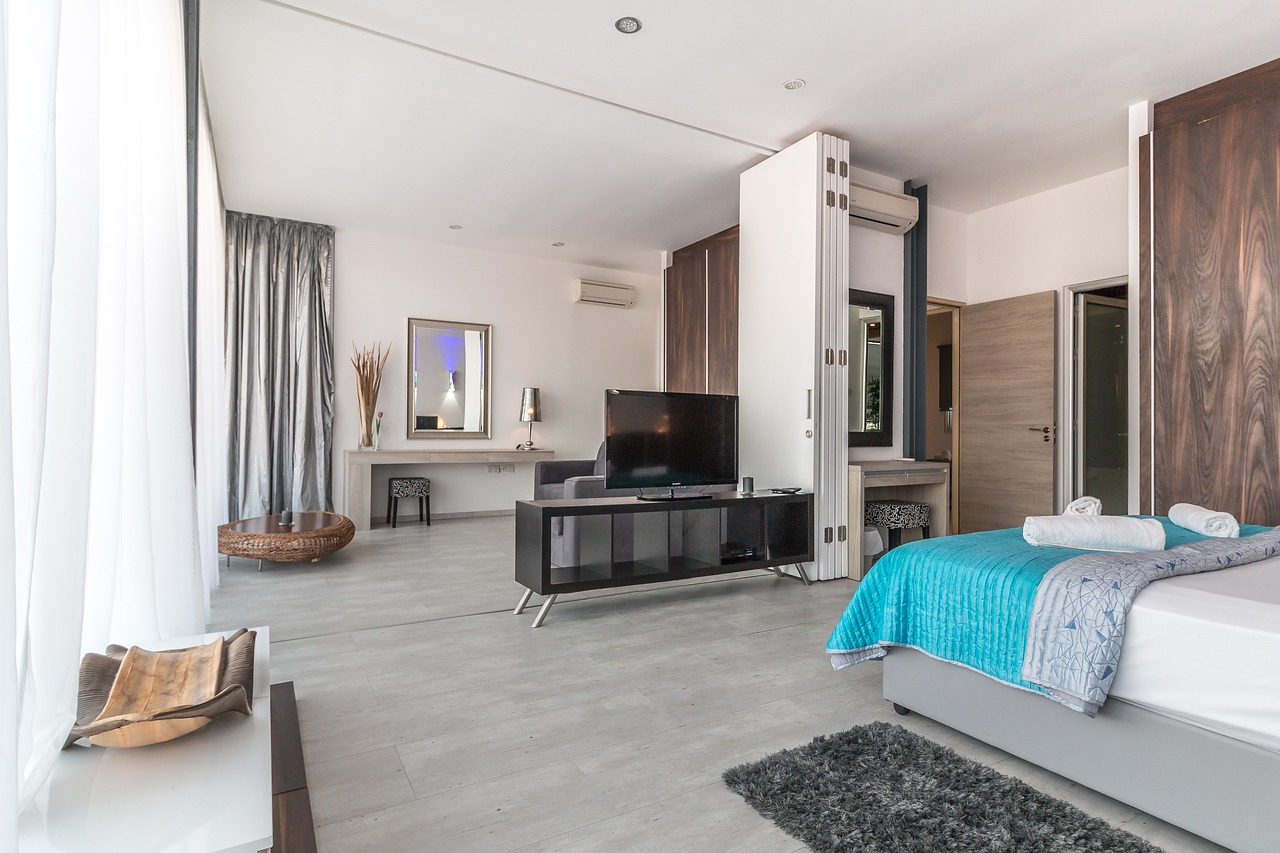Hotel Safety - Protecting Your Valuables
Traveling can be one of the most exhilarating experiences of your life, but it can also bring about a fair share of worries, especially when it comes to keeping your belongings safe. Imagine this: you’ve just arrived at a beautiful hotel, the ambiance is perfect, and you’re ready to unwind. But then, a nagging thought creeps in—what if something goes missing? Fear not! With the right strategies and a little foresight, you can protect your valuables and enjoy your stay without a care in the world. This article will guide you through essential tips and tricks to ensure your belongings remain secure while you soak in the joys of travel.
Hotels take the safety of their guests seriously, implementing a variety of security measures designed to protect both you and your belongings. From state-of-the-art surveillance systems to trained security personnel, these establishments invest heavily in creating a secure environment. Many hotels now use electronic key cards instead of traditional keys, which not only enhance security but also allow for restricted access to certain areas. Furthermore, some hotels have 24/7 security staff patrolling the premises, ready to respond to any suspicious activity.
However, it’s essential to remember that while hotels provide a layer of security, you also have a role to play. Being aware of your surroundings and understanding the security features available can dramatically reduce the risk of theft or loss. So, the next time you check into a hotel, take a moment to familiarize yourself with their security measures. It’s like having a safety net—one that keeps you secure while you focus on making memories.
Now that you know about the hotel’s security measures, let’s dive into some practical steps you can take to keep your valuables safe. First and foremost, always use the in-room safe provided by the hotel. These safes are designed to keep your items secure, but it’s crucial to use them wisely. It’s not just about locking your valuables away; it’s about knowing how to maximize their security. For instance, choose a strong password that’s not easily guessable, and avoid sharing it with anyone.
Another tip is to avoid leaving your valuables in plain sight. If you’re leaving the room, make sure to store your items out of view. Think of your hotel room as a stage—don’t let your valuables steal the spotlight! Instead, tuck them away in drawers or inside your luggage. Speaking of luggage, always secure it with locks, and consider using anti-theft bags or backpacks while exploring the city.
Using hotel safes can be a great way to protect your belongings, but not all safes are created equal. Understanding the limitations of hotel safe systems is vital. For example, while most in-room safes are secure, they may not be fireproof or waterproof. Therefore, if you have items that are particularly valuable or irreplaceable, consider additional protection, such as travel insurance.
When it comes to hotel safes, there are several types to choose from:
- Electronic Safes: These require a code and are quite common in hotels.
- Key-Operated Safes: These require a physical key and can be less convenient.
- Portable Safes: Ideal for travelers on the go, these can be locked to fixed objects.
Familiarizing yourself with these options can help you choose the best fit for your needs. Remember, the right safe can be your best friend when it comes to keeping your valuables secure!
Even with the best intentions, travelers often make mistakes when using hotel safes. Some common pitfalls include:
- Not locking the safe properly.
- Using easily guessable codes.
- Leaving valuables in the safe after checking out.
By being aware of these mistakes, you can enhance the protection of your valuables and travel with peace of mind.
Lastly, let’s talk about the safety net that is travel insurance. Think of it as a safety parachute for your belongings. Travel insurance can cover loss or theft during your hotel stay, providing you with financial protection. Before your trip, consider researching different policies to find one that best suits your needs. It’s always better to be safe than sorry!
While your hotel room may feel like a secure haven, it’s essential to remain vigilant in public spaces such as hotel lobbies, restaurants, and pools. These areas can be hotspots for pickpockets and other opportunistic thieves. Keep your belongings close and be mindful of your surroundings. If something feels off, trust your instincts. It’s like walking through a crowded market—stay aware, and you’ll avoid potential pitfalls.
Being able to identify suspicious behavior is a crucial skill for any traveler. Look out for individuals who seem overly interested in your belongings or those who are loitering without a clear purpose. If you notice someone acting strangely, don’t hesitate to report it to hotel staff. Taking proactive steps can make a world of difference in ensuring your valuables remain safe.
In the unfortunate event that theft or loss occurs, knowing how to report it is vital. Contact hotel management immediately and provide as much detail as possible. They will typically have a procedure in place to handle such incidents and can assist you in reporting to local authorities if necessary. Remember, swift action is key to recovering your belongings!
Q: How can I ensure the safety of my passport while traveling?
A: Always store your passport in the hotel safe or carry it with you in a secure, hidden pouch.
Q: Are hotel safes really secure?
A: While hotel safes provide a good level of security, they are not infallible. Always use additional precautions.
Q: What should I do if I lose something in a hotel?
A: Report the loss to hotel management immediately and provide details for a better chance of recovery.

Understanding Hotel Security Measures
When you step into a hotel, it’s not just about the lavish decor or the complimentary breakfast; it’s also about how safe you feel during your stay. Hotels invest heavily in security measures to protect their guests and their belongings, ensuring that your experience is as worry-free as possible. From high-tech surveillance systems to trained security personnel, these measures create a protective cocoon around you. But what exactly are these measures, and how can you benefit from them?
First and foremost, many hotels employ surveillance systems that monitor common areas like lobbies, hallways, and parking lots. These systems often utilize high-definition cameras that not only deter potential thieves but also provide crucial evidence in case of an incident. Imagine walking through a hotel where every corner is watched over; it’s like having a vigilant friend looking out for you!
Another common security feature is the use of electronic key cards. Gone are the days of traditional keys that can be easily duplicated. Instead, hotels provide guests with personalized key cards that grant access only to their specific room and common areas. This means that even if someone finds a lost key card, they still won’t be able to access your room without the right permissions. Additionally, many hotels have implemented a system where key cards are deactivated after check-out, adding another layer of security.
Of course, it’s not just technology that makes hotels safe. Trained security personnel are often present on-site, ready to assist guests and respond to any incidents. These professionals are trained to recognize suspicious behavior and can act swiftly to ensure the safety of everyone in the hotel. Their presence alone can be a significant deterrent for any would-be thief.
However, it’s essential to remember that while hotels do their best to keep you safe, you also play a crucial role in your own security. Being aware of your surroundings and understanding the security measures in place can help you make informed decisions about how to protect your belongings. For instance, knowing where the security cameras are located can help you feel more secure, and being aware of the hotel staff can help you identify who to approach if you have concerns.
In summary, understanding hotel security measures is not just about knowing what’s available but also about being proactive in your safety. By familiarizing yourself with the hotel’s security features and remaining vigilant, you can enjoy your stay without the nagging worry of theft or loss. After all, traveling should be about making memories, not about guarding your valuables!

Best Practices for Securing Valuables
When you're traveling, especially staying in hotels, the last thing you want to worry about is the safety of your belongings. It’s like trying to enjoy a beach vacation while constantly checking if your towel is still on your lounge chair. To truly relax, you need to take some proactive steps to ensure your valuables are secure. Here are some effective practices to keep your items safe during your hotel stay.
First and foremost, make use of the in-room safes that many hotels provide. These safes are designed to keep your important documents, cash, and electronics out of sight and locked away. However, it’s crucial to choose a strong password that isn’t easily guessable. Avoid using simple combinations like your birthday or the room number, as these can be easily figured out. Instead, think of a unique phrase or a combination of letters and numbers that only you would remember.
Another important tip is to never leave your valuables in plain sight. This might seem obvious, but you’d be surprised how many travelers leave their laptops, tablets, or even jewelry lying around. It’s like leaving a delicious cake unattended at a party; you’re just asking for someone to take a slice! Always store your items securely in the safe or keep them in your luggage when you’re not in the room.
Speaking of luggage, securing it properly is essential. When you arrive at your hotel, consider using luggage locks to deter any would-be thieves. While no lock is completely foolproof, a sturdy lock can act as a deterrent. Remember, it’s always better to make it harder for someone to steal your belongings rather than leaving them vulnerable.
Additionally, be cautious when using hotel amenities. For example, if you’re heading to the pool or gym, avoid bringing your expensive items with you. If you must take them, ensure they are secured in a waterproof pouch or a lockable bag. It’s like going for a swim with a life jacket; it’s better to be safe than sorry!
Lastly, consider taking advantage of hotel concierge services. They can assist you in finding secure storage options or recommend nearby safe deposit box services if you have particularly valuable items. Think of them as your personal security advisors, ready to help you navigate the safety landscape of your hotel stay.
In summary, securing your valuables while staying in hotels doesn’t have to be a daunting task. By following these best practices, you can enjoy your travels without the nagging worry of theft or loss. Remember, a little precaution goes a long way in ensuring peace of mind during your adventures!
Q: What should I do if my valuables are stolen from my hotel room?
A: First, report the theft to hotel management immediately. They may have security footage or other resources to help recover your items. Also, consider contacting local authorities to file a police report.
Q: Are hotel safes really secure?
A: While hotel safes provide an extra layer of security, they are not entirely foolproof. It’s essential to use a strong password and to understand that some safes can be accessed by hotel staff in emergencies.
Q: Is travel insurance necessary for protecting my belongings?
A: Travel insurance can be a valuable safety net. It often covers loss or theft of personal belongings during your trip, giving you peace of mind while you travel.

Using Hotel Safes Wisely
When you check into a hotel, the last thing you want to worry about is the safety of your personal belongings. That's where hotel safes come into play. They can be a great tool for securing your valuables, but using them wisely is crucial. First off, it’s important to understand that not all hotel safes are created equal. Some are more secure than others, and knowing how to use them effectively can make all the difference.
One of the first steps to using a hotel safe wisely is to choose a strong password. Many safes allow you to set a personal code, and while it might be tempting to use something easy to remember like your birthday, that could be a mistake. Instead, opt for a combination that is less predictable. For example, you might consider mixing numbers and letters or using a memorable phrase. The goal is to make it challenging for anyone else to guess.
Another essential tip is to understand the limitations of hotel safe systems. While they are generally reliable, they are not infallible. Some safes can be vulnerable to tampering, especially if they are older models. Therefore, it’s wise to avoid placing items of extreme value in the safe, such as expensive jewelry or large amounts of cash. Instead, consider using the safe for important documents, passports, and electronic devices like laptops and tablets.
Additionally, be mindful of what you leave in plain sight in your room. Even if you use the safe, it’s best to keep your luggage secured and out of view. For example, if you have a laptop bag, try to store it in the closet or under the bed when you’re not using it. This simple action can deter potential thieves who might be lurking around.
To further enhance your security, you might consider using a portable safe. These compact devices can be locked to a fixed object, such as a hotel bed frame or a heavy piece of furniture. This adds an extra layer of protection, especially if you’re traveling to areas where theft is more common. Just remember to keep the key or combination secure, as losing it could leave you in a bind.
In summary, using hotel safes wisely is about more than just locking your valuables away. It requires a combination of choosing a strong password, understanding the limitations of the safe, and being cautious about what you leave in your room. By following these tips, you can enjoy your stay with peace of mind, knowing that your belongings are as secure as possible.
- Are hotel safes secure? While hotel safes provide a level of security, they are not foolproof. It's essential to choose wisely and avoid storing extremely valuable items.
- What should I keep in a hotel safe? Important documents, electronics, and small valuables are ideal for hotel safes. Avoid placing large amounts of cash or expensive jewelry inside.
- Can I trust hotel staff with my valuables? Most hotel staff are trustworthy, but it's always best to err on the side of caution and secure your valuables in a safe.

Types of Hotel Safes
When it comes to securing your valuables during a hotel stay, understanding the different types of hotel safes available can make a significant difference. Not all safes are created equal, and knowing which type suits your needs best can enhance your peace of mind while you explore new destinations. Let's dive into the main types of hotel safes you might encounter:
| Type of Safe | Features | Best For |
|---|---|---|
| Electronic Safes | Keypad entry, programmable codes, often larger | Travelers with multiple items to secure |
| Key-Operated Safes | Simple lock and key mechanism, usually smaller | Those who prefer straightforward security |
| Portable Safes | Lightweight, can be secured to furniture, often with a combination lock | Travelers on the go or those staying in less secure accommodations |
Each type of safe comes with its own set of advantages and limitations. For instance, electronic safes are often the most popular choice in modern hotels due to their ease of use and ability to store larger items. However, they require a reliable power source and can sometimes malfunction. On the other hand, key-operated safes are incredibly straightforward but can pose a risk if the key is lost or misplaced. Lastly, portable safes offer flexibility and can be particularly useful for travelers who might be staying in various locations, allowing them to secure their belongings wherever they go.
It's essential to assess your own needs when choosing which safe to use. If you’re traveling with valuables like electronics, jewelry, or important documents, an electronic safe might be the best option. Conversely, if you just need to secure a few cash notes or a passport, a key-operated safe could suffice. Regardless of the type you choose, always remember to lock it securely and avoid sharing your access codes or keys with anyone.
In conclusion, understanding the available is crucial for safeguarding your belongings. By selecting the right safe and using it wisely, you can enjoy your travels without the constant worry of theft or loss. So, next time you check into a hotel, take a moment to evaluate the safe options and make an informed decision that best fits your travel style and security needs.
- What should I do if I forget the code to the electronic safe? - Contact the hotel staff; they usually have a master code or can assist you in opening it.
- Are hotel safes completely secure? - While they provide a level of security, no safe is entirely foolproof. It's best to keep valuables out of sight when possible.
- Can I use my own lock on a hotel safe? - Typically, hotel safes are designed with built-in locks, and using your own lock is not permitted.

Common Mistakes with Hotel Safes
When it comes to securing your valuables in hotel safes, many travelers unknowingly make critical mistakes that can jeopardize their belongings. One of the most prevalent errors is underestimating the importance of choosing a strong password. Many guests opt for easy-to-remember codes, such as 1234 or their birthdate, thinking they are safe. However, these predictable combinations can be easily guessed. Instead, consider using a unique combination that includes letters and numbers, making it significantly harder for anyone to crack.
Another common pitfall is failing to lock the safe properly. After entering your code, make sure to double-check that the door is securely closed. Many people assume that the safe will lock automatically, but this is not always the case. A simple oversight can leave your valuables vulnerable. Additionally, some guests mistakenly leave items in the safe that are not essential, thinking that they are safe just because they are locked away. It’s crucial to remember that hotel safes can be accessed by staff in emergencies, so avoid storing items that you cannot afford to lose, such as passports or large sums of cash.
Moreover, many travelers neglect to familiarize themselves with the safe’s operation before use. It’s wise to take a moment to read the instructions provided or ask hotel staff for assistance. Misunderstanding how the safe works can lead to locking your items inside without the ability to retrieve them later. It's like trying to drive a car without knowing how to operate the gear shift; you might end up stranded!
Lastly, when checking out, some guests forget to remove their belongings from the safe, leaving behind important items. Always make a checklist before leaving your room, ensuring that you have retrieved everything from the safe. A quick glance can save you the hassle of contacting the hotel later, which can sometimes lead to frustrating delays.
In conclusion, while hotel safes can provide a layer of security for your valuables, being aware of these common mistakes is essential. By taking the time to understand how to use them effectively, you can significantly reduce the risk of theft or loss during your travels.
Q: Are hotel safes completely secure?
A: While hotel safes offer a level of security, they are not foolproof. It’s important to use them wisely and avoid storing high-value items.
Q: What should I do if I forget my safe code?
A: Contact hotel management immediately. They usually have procedures in place to help guests regain access to their safes.
Q: Can hotel staff access my safe?
A: In most cases, hotel staff can access safes in emergencies, so avoid storing items that are irreplaceable.
Q: Is travel insurance necessary even if I use a hotel safe?
A: Yes, travel insurance is a good safety net. It can cover losses that occur even when you take precautions.

Travel Insurance Options
When it comes to protecting your valuables while traveling, travel insurance is a crucial safety net that can provide peace of mind. Imagine this: you’ve just checked into a luxurious hotel, your bags are unpacked, and you’re ready to explore the local sights. But what if, during your adventures, your laptop or expensive camera goes missing? This is where travel insurance steps in, offering coverage that can help you recover your losses.
Travel insurance typically covers a range of incidents, including loss, theft, or damage to your personal belongings. However, not all travel insurance policies are created equal. It’s essential to read the fine print and understand what’s included. Some policies may cover only certain types of items or have limits on the amount you can claim. For instance, if your smartphone is stolen, your policy might only reimburse you up to a specific dollar amount. Therefore, knowing your policy's details is as important as having the coverage itself.
There are several types of travel insurance options available, and choosing the right one can feel overwhelming. Here’s a quick overview of the main types:
- Comprehensive Travel Insurance: This type covers a wide range of issues, including trip cancellations, medical emergencies, and loss of personal belongings.
- Single-Trip Insurance: Ideal for travelers who take occasional trips, this policy covers you for one specific journey.
- Annual Travel Insurance: If you travel frequently, this option provides coverage for multiple trips throughout the year, often at a lower cost than purchasing separate policies.
- Specialized Insurance: Tailored for specific activities like skiing or adventure sports, ensuring you’re covered for any risks associated with high-adrenaline activities.
Before purchasing a policy, consider the following factors:
| Factor | Considerations |
|---|---|
| Coverage Amount | Ensure it covers the full value of your belongings, especially high-ticket items. |
| Deductibles | Check how much you’ll need to pay out-of-pocket before the insurance kicks in. |
| Exclusions | Be aware of what’s not covered, such as pre-existing conditions or certain activities. |
| Claim Process | Understand how to file a claim and the documentation required. |
In addition to basic coverage, some travel insurance policies offer additional options, such as personal liability coverage, which can protect you if you accidentally cause damage to someone else's property during your travels. This is particularly useful in hotel environments where accidents can happen.
Ultimately, investing in travel insurance is like putting on a seatbelt; it may not seem necessary until you need it. So, before you embark on your next adventure, take the time to research and select a policy that fits your travel style and provides adequate protection for your valuables. After all, the last thing you want is to be worrying about your belongings instead of enjoying your trip!
Q: Is travel insurance really necessary?
A: While it’s not mandatory, travel insurance can save you from significant financial loss in case of theft or emergencies.
Q: What should I do if my belongings are stolen?
A: Report the theft to hotel management and local authorities immediately, then contact your insurance provider to file a claim.
Q: Can I insure items like jewelry or electronics?
A: Yes, many travel insurance policies allow you to add coverage for high-value items, but confirm the limits and conditions.

Staying Aware in Public Spaces
When you're staying in a hotel, it’s easy to get lost in the excitement of your travels. However, maintaining a sense of awareness in public spaces is crucial for keeping your belongings safe. Imagine walking through a bustling hotel lobby, the sounds of chatter and clinking glasses surrounding you. It can be a sensory overload, making it easy to forget about your belongings. But staying alert can make all the difference.
First and foremost, always keep your valuables close. Whether you're lounging by the pool, enjoying a meal in the hotel restaurant, or simply waiting for the elevator, make it a habit to keep an eye on your bags and personal items. It’s like holding onto a precious gem; you wouldn’t just leave it lying around, would you?
In crowded areas, it’s essential to be aware of your surroundings. Look out for individuals who seem out of place or are acting suspiciously. You might notice someone lingering too long near your luggage or a person who seems overly interested in your belongings. Trust your instincts—if something feels off, it probably is. In these situations, it’s best to take a step back and reassess your environment.
Another effective strategy is to familiarize yourself with the layout of the hotel. Knowing where the exits, security stations, and main areas are can give you a sense of control. If you’re aware of your surroundings, you’ll be less likely to fall victim to theft or loss. Make a mental note of where you see hotel staff and security personnel; they’re there to help you, and it’s always good to know who to approach if you need assistance.
When using common areas like hotel lounges or business centers, try to avoid leaving your items unattended. If you need to step away, consider asking a fellow traveler to watch your things or take them with you. It’s like having a buddy system; safety in numbers is always a good idea.
Finally, remember that your phone can be a valuable tool for safety. Use it to stay connected with friends or family, and consider sharing your location with someone you trust. In the age of technology, it’s easier than ever to keep others informed about your whereabouts. Plus, if something does go wrong, having your phone handy can help you quickly contact hotel management or local authorities.
In conclusion, staying aware in public spaces during your hotel stay isn’t just about protecting your belongings; it’s about enhancing your overall travel experience. By being vigilant and proactive, you can enjoy your trip without the nagging worry of theft or loss. So, the next time you find yourself in a hotel lobby, take a moment to soak in the atmosphere, but don’t forget to keep an eye on your valuables!
- What should I do if I notice suspicious behavior in the hotel? If you see something that makes you uncomfortable, report it to hotel staff or security immediately.
- Are hotel safes completely secure? While hotel safes add an extra layer of protection, they are not foolproof. Always use common sense and keep valuables in sight when possible.
- How can I keep my belongings safe while dining in the hotel restaurant? When dining out, keep your bag on your lap or secured to your chair, and avoid leaving it unattended on the table.

Recognizing Suspicious Behavior
When you're staying in a hotel, your safety and the protection of your belongings should always be a top priority. One of the best ways to ensure that your valuables remain secure is to be aware of your surroundings and recognize suspicious behavior. But what does this mean, and how can you identify it? Well, let’s dive into some key indicators that may signal something isn’t quite right.
First off, keep an eye out for individuals who seem to be lingering without any clear purpose. For example, if someone is repeatedly walking through the hotel lobby or hanging around the elevator for an extended period, it might raise a red flag. They could be waiting for an opportunity to take advantage of unsuspecting guests. Additionally, look for people who seem overly interested in your belongings. If someone is staring at your bag or watching you enter your room, trust your instincts and maintain a heightened sense of awareness.
Another common sign of suspicious behavior is when someone is dressed inappropriately for the setting. For instance, if you see a person in formal attire lounging by the pool or someone in casual wear trying to access a restricted area, it’s worth taking note. These discrepancies can often indicate that they don’t belong there and may have ulterior motives. Furthermore, if you notice someone attempting to engage in conversation with you or other guests but seems overly pushy or evasive about their own identity, it’s best to keep your distance.
In addition to these signs, consider the context of the situation. For example, if a person is acting nervously or fidgeting while keeping a close watch on hotel staff or guests, this behavior can be a clear indicator that something is amiss. Trust your gut feeling; if something feels off, it probably is. Remember, your intuition is a powerful tool in keeping yourself and your belongings safe.
To further enhance your awareness, here are some quick tips on what to do if you encounter suspicious behavior:
- Stay Alert: Keep your phone handy and avoid distractions like scrolling through social media.
- Trust Your Instincts: If you feel uncomfortable, remove yourself from the situation.
- Report Concerns: Don’t hesitate to inform hotel staff or security if you notice anything unusual.
By being vigilant and aware of your surroundings, you can significantly reduce the risk of theft or loss during your hotel stay. Remember, it’s not just about protecting your valuables; it’s about ensuring a safe and enjoyable travel experience. So, keep your eyes open, trust your instincts, and don’t hesitate to take action if something doesn’t feel right.
Q: What should I do if I notice suspicious behavior in the hotel?
A: If you notice anything suspicious, it’s best to inform hotel management or security immediately. They are trained to handle such situations and can take appropriate action.
Q: How can I protect my valuables while staying in a hotel?
A: Use in-room safes, keep valuables out of sight, and be cautious about where you leave your belongings. Additionally, remain aware of your surroundings and recognize any suspicious behavior.
Q: Is it safe to leave my belongings unattended in hotel common areas?
A: It's generally not advisable to leave your belongings unattended in public areas. Always keep an eye on your possessions or take them with you to minimize the risk of theft.

Reporting Incidents
When it comes to staying in a hotel, one of the last things on your mind is the possibility of losing your belongings or experiencing theft. However, if such an unfortunate event occurs, knowing how to report it can make all the difference. First and foremost, stay calm. Panic can cloud your judgment, and you want to handle the situation as effectively as possible. Start by notifying the hotel staff immediately. Most hotels have a dedicated security team that is trained to handle such incidents, so don’t hesitate to approach the front desk or call for assistance.
Once you've alerted the hotel staff, they will likely ask for details about the incident. Be prepared to provide information such as:
- Your room number
- A description of the lost or stolen items
- The time and location where you last saw your belongings
- Any suspicious individuals you may have noticed
After reporting the incident, the hotel may provide you with a written report. This document is crucial, especially if you plan to file a claim with your travel insurance provider. Make sure to keep a copy of this report for your records. Additionally, if the items lost or stolen are of significant value, consider contacting local law enforcement. They can assist in filing a police report, which may be necessary for insurance claims.
It's also wise to keep a record of any communications you have regarding the incident. Document the names of the hotel staff members you spoke with, the time and date of your conversations, and any reference numbers provided. This can help you track the progress of your case and ensure that you have all necessary information at hand.
In some cases, hotels may have policies regarding compensation for lost or stolen items. Familiarize yourself with these policies, as they can vary widely. Some hotels may offer to cover the cost of your belongings, while others may direct you to your insurance provider. Understanding these policies beforehand can save you a lot of hassle later on.
Ultimately, being proactive can minimize the impact of a theft or loss. Always keep your valuables secure and consider using hotel safes wisely. However, if the unexpected happens, knowing how to report incidents effectively can help you recover your belongings and provide peace of mind during your travels.
- What should I do if I think my room has been broken into?
Immediately contact hotel security and the front desk. Document what is missing and any signs of forced entry. - Will the hotel compensate me for stolen items?
Compensation policies vary by hotel. Check with the front desk for their specific policy on lost or stolen items. - Do I need to file a police report for stolen items?
If your items are of significant value or if the hotel requires it for their records, yes, you should file a police report. - How can I prevent theft in hotels?
Use in-room safes, avoid leaving valuables in plain sight, and be aware of your surroundings at all times.
Frequently Asked Questions
- What security measures do hotels typically have in place?
Hotels often implement a variety of security measures to ensure guest safety. These can include surveillance cameras in common areas, electronic key card systems for room access, and trained security personnel who monitor the premises. Additionally, many hotels conduct background checks on their staff to enhance security.
- How can I keep my valuables safe during my stay?
To keep your valuables safe while staying at a hotel, it's crucial to use the in-room safe, if available. Always remember to avoid leaving items in plain sight, as this can attract unwanted attention. When you’re not in your room, consider securing your luggage with a lock and keeping your most valuable items with you.
- What are the best practices for using hotel safes?
When using hotel safes, choose a strong password and ensure that you understand how the safe operates. It's also wise to avoid using easily guessable codes like your birthday. Additionally, remember that hotel safes can have limitations, so it’s best to keep only essential items in them.
- What types of hotel safes are available?
Hotels generally offer several types of safes, including electronic safes that require a code, key-operated safes that use a physical key, and even portable safes that you can carry with you. Each type has its advantages, so consider your needs when choosing one.
- What common mistakes should I avoid with hotel safes?
Common mistakes include leaving the safe unlocked, using weak passwords, or not double-checking that the safe is closed properly. Additionally, don’t store all your valuables in one place; spread them out to minimize risk.
- How does travel insurance help protect my belongings?
Travel insurance acts as a safety net by covering loss or theft of your belongings during your trip. It's a good idea to review your policy details to ensure your valuables are adequately covered while staying in hotels.
- How can I stay aware of my surroundings in public hotel spaces?
Staying aware means keeping your head up and observing your environment. Avoid distractions like your phone, especially in crowded areas like lobbies or restaurants. Being conscious of who is around you can significantly reduce your risk of theft.
- What should I do if I notice suspicious behavior in the hotel?
If you see something suspicious, trust your instincts. You can report it to hotel staff or security immediately. They are trained to handle such situations and can take appropriate action to ensure everyone’s safety.
- What is the process for reporting theft or loss in a hotel?
If you experience theft or loss, notify the hotel management right away. They will typically ask for details about the incident and may provide assistance in filing a report with local authorities. Prompt reporting can increase the chances of recovering your valuables.



















